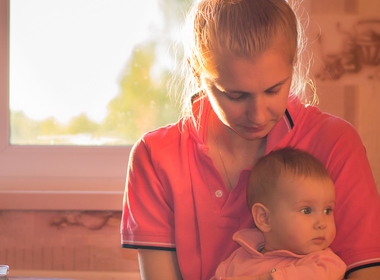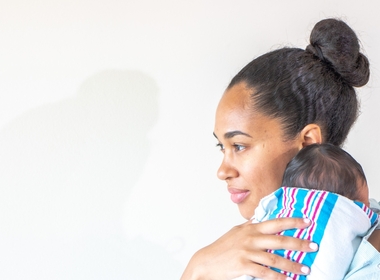In the UK, we expect all women and birthing people to receive the support they need to look after themselves physically during pregnancy, birth, and postnatally. Despite the fact that perinatal mental illness is the most common complication of pregnancy and the postnatal period, mental health is often treated very differently and there is no where near the same level of investment.
Although anyone can experience perinatal mental health problems, some parents are at greater risk of becoming unwell and less likely to receive the care they need. This is particularly so for Black and brown women, young mothers, and those experiencing multiple disadvantage such as domestic abuse, poverty, insecure housing and addiction.
This can be due to a lack of social support systems, prejudice, stigma, and isolation. For some communities and groups, accessing quality care can be especially difficult, and there are additional barriers for women and birthing people facing multiple disadvantages and systemic inequality. Trauma, deprivation and discrimination impacts heavily on the experiences of new and expectant parents.
The MMHA is committed to shining a light on the issues, circumstances and characteristics which can lead to worse experiences of care and poorer outcomes, and often have a profound impact on someone's risk of perinatal mental illness.
We will listen to MMHA Members, Lived Experience Champions and those outside of the network whose voices are seldom heard, and use our influence to shape policy and practice.
Together, we will strive for equity for all new and expectant parents.

For women facing drug and/or alcohol addiction, there is an intense stigma around pregnancy, birth and the postnatal period.

Black mothers consistently have poorer experiences of care and worse maternity outcomes.

Domestic abuse affects an estimated 1.3 million women each year, with many cases beginning or escalating during pregnancy.

Postnatal depression is up to twice as prevalent in teenage mothers compared to those over 20 and teenage maternal suicide is rising.
We call for the mental health of all new and expectant mothers and birthing parents to be monitored, discussed and treated in the same way as their physical health during this crucial time. We also call for the same standard of perinatal mental health care to be available to every woman and birthing person regardless of personal characteristics, circumstances, or postcode. Our maps show that families in large areas of the UK are still not receiving the support they need.
Let's create change